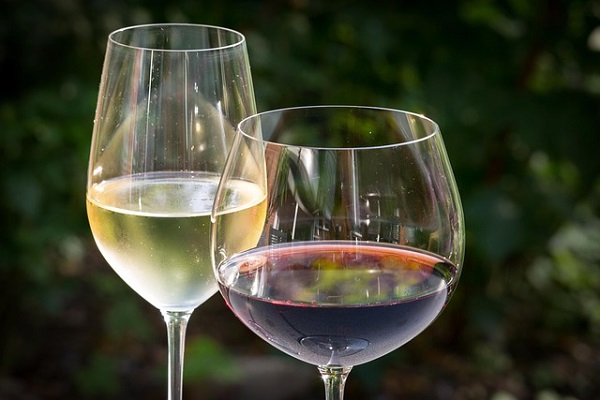 Credit: Pixabay
Credit: Pixabay
Alcohol has long held a central place in European social life - as a "Millennial", I am well aware of the binge drinking culture in Ireland and the United Kingdom, where nights out often felt like a rite of passage.
After nearly a decade living in Luxembourg, I have also come to see how wine and crémant are deeply tied to the country's cultural identity.
Yet a generational shift seems to be underway. Young people (especially "Gen Z" - those born in the late 1990s and early 2000s) seem to be drinking less than their parents and grandparents. More than a trend, this reflects a shift in social norms, health priorities and even national industries.
Eurostat ranked Luxembourg second for weekly alcohol consumption (43.1%) among comparison countries in 2019; however, such statistics need to be understood as they are often based on sales figures, and we must recognise the significance of "alcohol tourism" where people driving through / to Luxembourg avail of the relatively cheap cost of alcohol here. The Grand Duchy also had one of the lowest shares of adults who drink no alcohol at all (17.2%).
However, consumption patterns vary by age. According to Luxembourg's National Health Observatory, only 28.9% of 15- to 24-year-olds drank weekly in 2019, compared to nearly half of those over 25. Both daily and weekly alcohol consumption rose steeply with age.
Why are young people drinking less? The answer may - at least partly - lie in greater awareness of health risks. The World Health Organization (WHO) has confirmed there is no safe level of alcohol consumption, which remains a leading cause of preventable cancers. Since it is Breast Cancer Awareness Month ("Pink October"), it is worth recalling that breast cancer is the most common alcohol-related cancer among women. In Luxembourg, drink-driving is also a leading cause of road accidents resulting in death or injury. In 2019, it was estimated that alcohol consumption was responsible for 7% of all deaths in the Grand Duchy.
Public initiatives such as government awareness campaigns and "Dry January" or the Fondation Cancer's "Sober Buddy Challenge" reinforce the shift, inviting people to reset their relationship with alcohol and reap the health benefits of abstinence. Moreover, the stigma around choosing not to drink seems to be fading, as more people join the "sober curious" or "sober by choice" movements, and many drink brands are bringing out 0.0 alternatives which are being accepted within peer groups. For Gen Z, raised in an era of wellness culture and instant access to health information, alcohol has lost some of its appeal.
Economic pressures may also play a role. In Luxembourg, a bottle of water in a bar or restaurant often costs more than a beer. Yet, with housing and living costs soaring, binge drinking feels not only unhealthy but unaffordable. Eurostat data shows that EU households spent over €128 billion on alcoholic beverages - nearly 1.8% of their total consumption expenditure. In Luxembourg, the share was even higher at about 2.7%, making alcohol a noticeable household expense. Rising prices mean households may be spending more overall, but not necessarily drinking more.
And then there is the pressure that social media brings. Many young people nowadays post less than Millennials and older generations, increasingly aware of the pitfalls and long-term consequences of publicly sharing such habits. The need to curate a "healthy" or aspirational lifestyle - whether through fitness or wellness - can reinforce the choice to drink less. Just look at the rise of "fitfluencers" and wellness-focused online communities, where moderation and self-care are celebrated over excess - all the while remembering that social media is not real life.
Of course, drinking less or no alcohol does not mean young people are avoiding all substances. Some studies suggest young people are turning to alternatives such as cannabis or vaping - trends which carry their own risks.
For Luxembourg's wine industry, changing drinking habits are forcing adaptation. At the 2025 "Wäibaudësch" roundtable, winegrowers voiced concern for the sector's future. One of the points discussed was the EU's new wine package, which aims in part to "enable wine producers to tap more fully into emerging consumer trends, such as increased demand for wines with no or less alcohol". Luxembourg's Minister of Finance, Gilles Roth, praised the industry's "desire to innovate and expand its range of wine products" and "to promote moderate and more responsible wine consumption", while promising fiscal support. What might seem like a threat could thus become a renewal for the sector.
Older generations may still see alcohol as part of daily life, but for Gen Z, it seems moderation or abstinence is becoming the norm. With alcohol classified as a carcinogen, its dangers are well documented - and young people seem to be taking heed.
For Luxembourg, and other countries with a strong wine / drinking culture, the challenge will be to honour tradition and national industries, while recognising that the next generation is choosing to drink less. Instead of lamenting, perhaps it is time to raise a glass of sparkling water or alcohol-free crémant to a healthier future...









